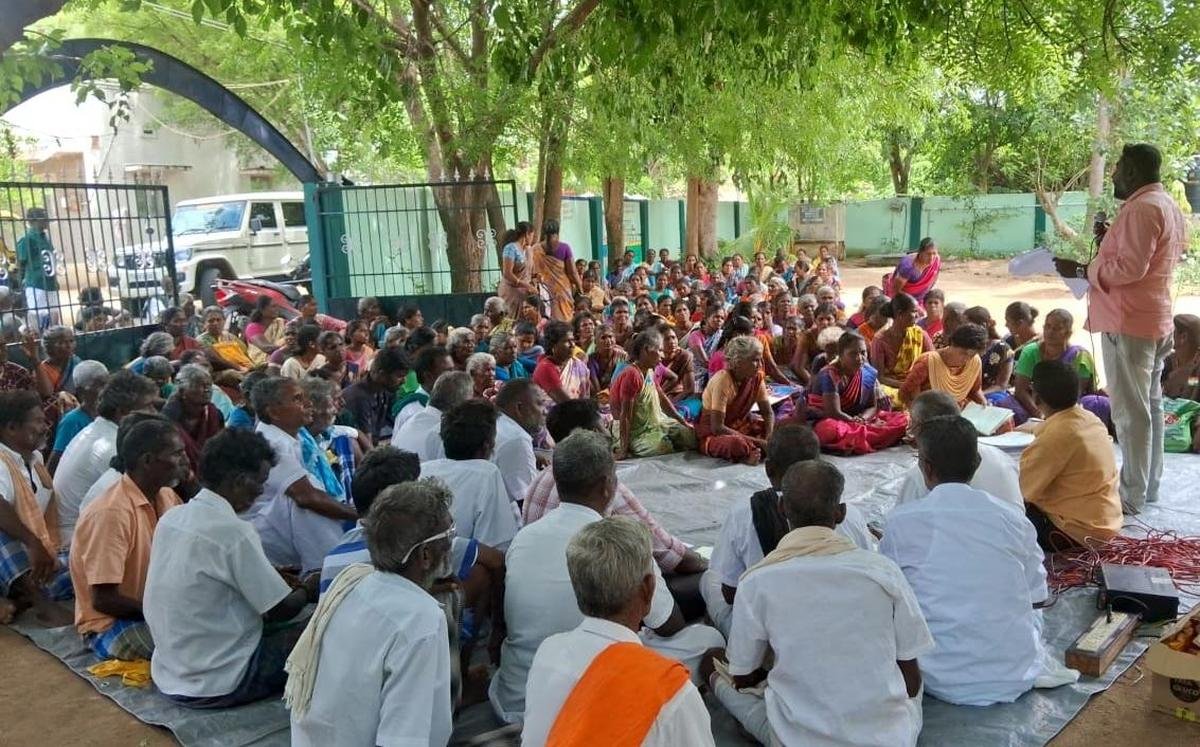Why in the News?
The Telangana Assembly Speaker’s office has approached the Supreme Court for an additional two months to complete hearings on pending disqualification petitions after the three-month period set by the Court expired on October 31.
Key Highlights
- Background to the petitions
- The Bharat Rashtra Samithi (BRS) filed petitions alleging that several of its MLAs had defected by joining or supporting the Congress, triggering complaints under the anti-defection law.
- These petitions ask the Speaker to determine whether the members should be disqualified from the Assembly.
- Supreme Court timeline order
- The Supreme Court earlier set a three-month timeline within which the inquiry into the disqualification petitions should be completed.
- That timeline lapsed on October 31, prompting the Speaker’s office to seek an extension.
- Speaker’s plea
- The Assembly Secretary, acting for the Speaker, filed a petition in the Supreme Court requesting two more months to finish the inquiry.
- The plea notes that the inquiry has begun but is still at an early stage: only four legislators have been examined to date.
Anti-Defection Law
- What is the anti-defection law?
- The anti-defection law is contained in the Tenth Schedule of the Constitution. It was introduced to prevent political defections motivated by the lure of office or money and to ensure stability of elected governments.
- How does it define defection?
- A legislator may be disqualified if they voluntarily give up membership of the political party on whose ticket they were elected.
- A member can also be disqualified for voting or abstaining from voting contrary to the direction of their party without prior permission.
- Who decides disqualification?
- The Presiding Officer of the House — the Speaker (for state assemblies) or the Chairperson (for Rajya Sabha) — has the authority to decide disqualification petitions.
- Historically the Speaker’s decision is preliminary; courts can review such decisions on limited grounds and ensure rule of law.
- Exceptions and safeguards
- Merger exception: If two-thirds of members of a party decide to merge with another party, they are not disqualified.
- Rules of procedure and fairness must be followed in inquiry; the Presiding Officer must give notice, hear parties, and record reasons for the decision.
- Why does it matter?
- The law seeks to balance party discipline and individual legislative freedom. It affects government stability, legislative behaviour, and the representative link between voters and elected members.
Implications
- Political stability at stake: Extended or delayed disqualification proceedings can prolong uncertainty and affect the functioning of the state government.
- Judicial oversight: The Supreme Court’s role in setting timelines signals active judicial supervision over Speaker-led processes, reinforcing checks and balances.
- Precedent for procedure: The outcome will influence future practice on how quickly and fairly anti-defection inquiries are concluded.
- Institutional credibility: How the Speaker handles the inquiry affects perceptions of impartiality versus partisanship in the office.
- Electoral mandate vs political realignment: Disqualification decisions test the principle that voters’ choice should not be subverted by post-election defections.
Challenges and Way Forward
| Challenges | Way Forward |
| Delay in completing hearings due to procedural complexity and political sensitivity. | Adopt clear procedural timelines, expand secretariat support, and use case-management to ensure timely hearings. |
| Perception of Speaker’s partisanship in politically charged cases. | Ensure transparency of proceedings, publish reasons, and allow adequate legal representation to all parties. |
| Limited judicial vs legislative domain clarity on timelines and remedies. | Judicially defined standard operating procedures for disqualification hearings, preserving the Speaker’s role while enabling review. |
| Evidentiary difficulties in proving “voluntarily giving up membership”. | Allow modern evidence standards — statements, social media, voting records — with standards for admissibility and cross-examination. |
| Risk of destabilising governments through serial petitions. | Consider fast-track rules for high-impact petitions and threshold filters to avoid frivolous or politically motivated filings. |
Conclusion
The Speaker’s request for extra time in the Telangana defection cases highlights a fundamental tension between procedural fairness and the need for swift resolution in anti-defection matters. While the Speaker must be given space to conduct a thorough inquiry, timely disposal is essential to uphold legislative stability, protect voters’ mandates, and maintain public confidence in democratic institutions.
| EnsureIAS Mains Question Q. Examine the strengths and weaknesses of the Tenth Schedule (anti-defection law) in preserving legislative stability and democratic representation. Suggest reforms to balance party discipline with individual conscience rights of legislators. (250 Words) |
| EnsureIAS Prelims Question Q. Which of the following statements are correct? Choose the correct option: Answer: C (1 and 3 only) Explanation: Statement 2 is incorrect: While the Presiding Officer (Speaker/Chairperson) decides disqualification petitions, this decision is subject to judicial review on limited grounds such as malafide, non-application of mind or violation of principles of natural justice, as upheld by the courts. Statement 3 is correct: The law provides an exception for merger: if at least two-thirds of a party’s legislators agree to merge with another party, they are not liable to disqualification under the Tenth Schedule. |
Also Read | |
| UPSC Foundation Course | UPSC Daily Current Affairs |
| UPSC Monthly Magazine | CSAT Foundation Course |
| Free MCQs for UPSC Prelims | UPSC Test Series |
| Best IAS Coaching in Delhi | Our Booklist |





